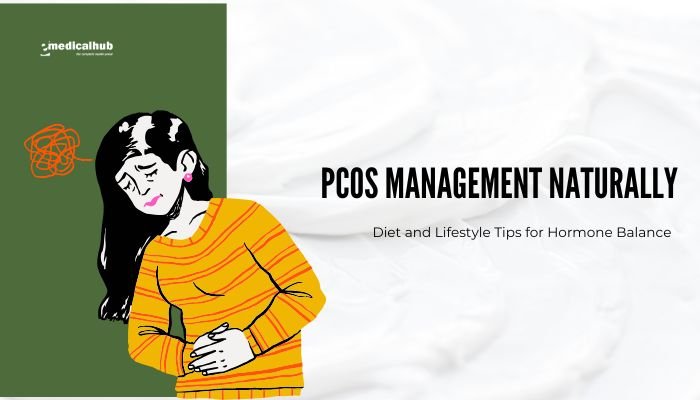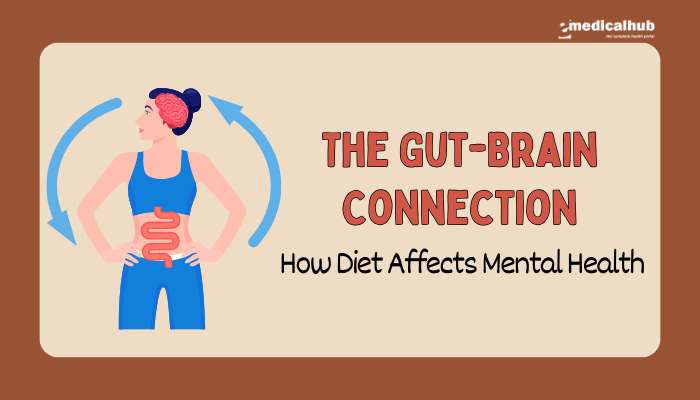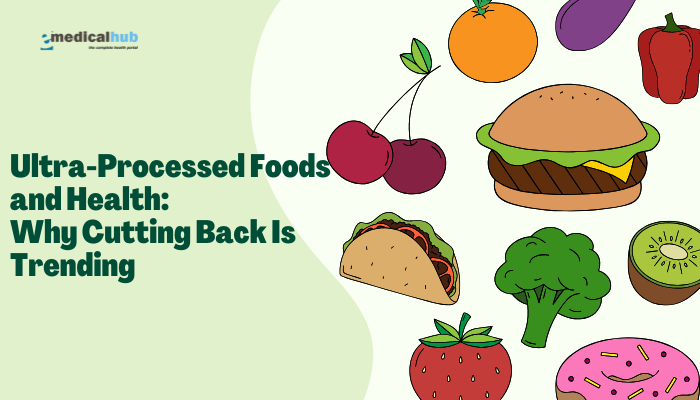Introduction
Polycystic Ovary Syndrome (PCOS) is a condition linked to hormonal imbalances in women. It often involves higher androgen (male-type hormone) levels, irregular menstrual cycles, and ovarian cysts.
Common signs include acne, hair growth in unwanted areas, hair thinning on the scalp, and weight gain or difficulties losing weight. PCOS also increases risks of insulin resistance, which can affect metabolism and overall health.
While medication and medical interventions can help, many individuals benefit from natural approaches that address diet, physical activity, and daily habits. These choices can support better hormone balance, improve insulin sensitivity, and reduce some PCOS-related complications.
This article explores natural strategies for managing PCOS, with a special focus on diet and lifestyle tips for hormone balance.
Understanding PCOS and Hormone Imbalance
Basics of PCOS
PCOS is a hormonal issue involving multiple factors:
• Excess Androgens: Androgens like testosterone can lead to acne, excess facial or body hair, and scalp hair thinning.
• Insulin Resistance: Many with PCOS have trouble regulating blood sugar and insulin. This may lead to weight gain, fatigue, and higher diabetes risk.
• Irregular Ovulation: Because of hormonal disruptions, ovulation may be inconsistent, causing irregular periods or difficulty getting pregnant.
Why Diet and Lifestyle Matter
Hormones are sensitive to stress, sleep, exercise, and nutrition. Lifestyle steps can stabilize blood sugar, moderate inflammation, and support a balanced hormone environment. For some, these measures can also aid weight loss, which may improve PCOS symptoms.
Quote: “Small lifestyle adjustments, such as a balanced diet and regular movement, can create positive shifts in hormones and metabolism.”
Role of Diet in PCOS Management
Blood Sugar and Insulin
Insulin helps cells take in glucose for energy. When insulin resistance develops, cells do not respond well, so the body must produce extra insulin to compensate. High insulin levels can cause the ovaries to produce more androgens. By focusing on stable blood sugar, many see improvements in PCOS symptoms:
• Less androgen production
• More regulated cycles
• Improved weight management
Key Dietary Principles
• Consistent Meal Timing: Aim for regular mealtimes to avoid large blood sugar swings.
• Portion Control: Overeating, even healthy foods, can strain insulin balance. Moderation helps stabilize hormones.
• Balanced Macronutrients: Include protein, carbs, and healthy fats in each meal to slow glucose release.
Glycemic Index (GI) Awareness
• Low-GI Foods: Such as legumes, whole grains, and non-starchy vegetables. They digest slowly and help prevent sudden sugar spikes.
• High-GI Foods: Sweet snacks, refined grains, or sugary drinks can cause rapid blood sugar elevations, making insulin management harder.
Key Nutrients for Hormonal Health
• Protein: Supports muscle maintenance and helps control hunger. Good sources include lean meats, eggs, fish, beans, and low-fat dairy.
• Fiber: Found in vegetables, fruits, whole grains, and legumes. Helps reduce insulin spikes and fosters gut health.
• Omega-3 Fats: Anti-inflammatory properties that may improve insulin sensitivity. Present in fatty fish (salmon, sardines), flaxseeds, and walnuts.
Foods to Emphasize
• Vegetables and Fruits: Offer vitamins, minerals, antioxidants, and fiber that benefit metabolism.
• Whole Grains: Brown rice, oats, whole-wheat bread, or quinoa for sustained energy and stable blood sugar.
• Lean Proteins: Chicken breast, turkey, lean red meat (in moderation), beans, lentils, and tofu.
• Healthy Fats: Avocados, nuts, seeds, and olive oil for essential fatty acids.
Foods to Limit
• Sugary Snacks and Beverages: High sugar content disrupts insulin balance and may worsen PCOS symptoms.
• Refined Carbohydrates: White bread, pasta, and pastries break down quickly into glucose, triggering blood sugar spikes.
• Trans Fats: Processed snacks, fried foods, or some margarine can increase inflammation.
• Excess Saturated Fat: Large amounts of red meat or full-fat dairy might contribute to insulin resistance.
Personalized Approaches
Diet can vary from person to person. Some do well on moderately low-carbohydrate plans. Others may prefer balanced carbohydrate intake with ample fiber. Consulting a registered dietitian or a healthcare provider can refine dietary choices based on individual blood work and preferences.
Practical Diet Tips and Meal Ideas
Meal Structure
• Balanced Breakfast: Examples: Oatmeal with berries and a handful of nuts, or eggs with spinach on whole-grain toast.
• Lunch Focus: Lean protein like chicken or beans, plus whole grains and a side salad.
• Smart Snacks: Yogurt with flaxseeds, apple slices with peanut butter, or mixed nuts and seeds. • Dinner: Salmon with roasted vegetables, or lentil soup with a side of brown rice and steamed greens.
Protein-Forward Strategies
• Add beans, lentils, or chickpeas to salads and soups.
• Snack on boiled eggs or low-fat dairy to curb mid-afternoon cravings.
• Incorporate fish or lean poultry into main meals.
Creative Fiber Boosters
• Mix ground flaxseeds or chia seeds into smoothies, yogurt, or oatmeal.
• Try whole-grain swaps like quinoa instead of white rice, whole-wheat pasta instead of regular pasta.
• Aim for at least 2–3 servings of vegetables with main meals.
Flavor Enhancers without Extra Sugar
• Use herbs, spices, garlic, onion, lemon juice, or vinegar to add taste.
• Limit sauces that rely on sugar or heavy cream.
• Choose low-sugar dressings, or make simple homemade vinaigrettes with olive oil, lemon, and herbs.
Weight Management in PCOS
Why Weight Control Can Help Excess body weight can exacerbate insulin resistance and hormone imbalance. Losing even a small percentage of weight (like 5–10% of body weight) can help:
• Stabilize menstrual cycles
• Reduce androgen levels
• Improve fertility odds for those trying to conceive
Tips for Healthy, Sustainable Weight Loss
• Avoid Fad Diets: Rapid weight loss plans often lead to yo-yo effects. Steady progress is more sustainable.
• Track Eating Patterns: Some find it useful to keep a food journal or use apps to maintain awareness.
• Focus on Nutrient Density: Choose nutrient-rich foods over empty-calorie snacks.
• Mindful Eating: Eat slowly, recognize hunger and fullness cues, and limit emotional eating triggers.
Non-Scale Victories
• Improved mood and energy
• More stable cycle or less severe symptoms
• Better sleep patterns
Lifestyle Habits Beyond Diet
Importance of Regular Exercise
Physical activity supports insulin sensitivity, helps weight management, and can reduce stress. For PCOS, a mix of aerobic and resistance training often works best.
• Aerobic Activities: Brisk walking, cycling, jogging, or swimming. Aim for at least 150 minutes per week of moderate exercise.
• Strength Training: Lifting weights, using resistance bands, or doing bodyweight exercises (squats, lunges, push-ups). Muscle tissue boosts metabolism and can improve hormone function.
• Low-Impact Options: Yoga, pilates, or gentle stretching for those who prefer lower-intensity workouts or have joint issues.
Stress Management and Hormones
Stress triggers a hormone called cortisol, which can affect blood sugar and exacerbate insulin resistance. Chronic stress can also disrupt other hormones, possibly worsening PCOS symptoms.
• Mindfulness Techniques: Meditation, deep breathing, or guided imagery help break stress cycles.
• Relaxing Hobbies: Crafts, reading, music, or gardening encourage mental calm.
• Limiting Overcommitment: Setting boundaries for work and personal obligations to prevent constant tension.
Adequate Sleep
• Hormone Regulation: Poor sleep can raise insulin resistance, while quality rest supports normal hunger and satiety hormones.
• Tips for Better Sleep: Maintain a set bedtime, avoid heavy meals or intense screens before bed, and keep the bedroom dark and cool.
• Evening Wind-Down: Relax with mild stretching, calming music, or a warm shower to signal the body it is time for rest.
Mind-Body Exercises
• Yoga: Improves flexibility, strength, and relaxation. Certain poses may enhance blood flow to the pelvic region.
• Tai Chi: A gentle, meditative form of movement that can support balance, circulation, and stress reduction.
• Breathing Drills: Simple breathwork reduces heart rate, calms the mind, and may aid hormone balance over time.
Supplements and Herbs: A Cautious Look
Commonly Discussed Options
• Inositol (Myo-Inositol): Some research suggests it can help regulate insulin and menstrual cycles.
• Omega-3 Fatty Acids: Found in fish oil supplements, they may combat inflammation and insulin issues.
• Vitamin D: Deficiency is common in PCOS; ensuring adequate levels can support hormone health.
• Cinnamon: Some small studies indicate it may help regulate blood sugar in type 2 diabetes and possibly in PCOS.
Consultation with Professionals
Before starting any supplement, consult a healthcare provider. Supplements can interact with medications, and doses need to be correct for potential benefits.
Quote: “While certain supplements might offer support, professional advice ensures safe use and tailored guidelines.”
Emotional Well-Being with PCOS
Psychological Impact
Weight changes, excess hair, acne, or fertility struggles can affect self-esteem and mental health. Many experience frustration, mood swings, or social withdrawal.
Support Systems
• Friends and Family: Openly discuss what you are going through so they can offer empathy.
• Counseling or Therapy: Mental health professionals can help with coping strategies, stress management, and body image issues.
• Support Groups: Online or local meetups give space to share experiences and tips with others facing similar challenges.
Self-Compassion
• Positive Self-Talk: Remind yourself that PCOS management is a process, and small improvements matter.
• Reward Healthy Behaviors: Celebrate consistency rather than perfection.
• Creative Outlets: Journaling, painting, or other artistic activities can alleviate stress and boost mood.
Addressing Fertility Concerns
Impact of PCOS on Fertility
Irregular ovulation can make it difficult to conceive. Some experience hormone fluctuations that delay or prevent egg release. However, many do become pregnant with the right guidance and planning.
Lifestyle Strategies to Boost Fertility
• Balanced Nutrition: Supports regular cycles and hormone stability.
• Healthy Body Weight: Overweight or underweight extremes can disturb ovulation.
• Supplements: Inositol, folic acid, and other nutrients recommended by doctors.
• Managing Insulin Resistance: If insulin levels are high, fertility may be impaired. A measured, steady approach to weight loss (if needed) and balanced diets can help restore normal ovulation.
Medical Interventions
While this article focuses on natural strategies, it is worth noting that healthcare providers may use medications (like clomiphene citrate or letrozole) to prompt ovulation if diet and exercise alone are insufficient. Combining medical treatments with healthy lifestyle habits often yields better results.
Creating a Sustainable PCOS-Friendly Lifestyle
Routines and Consistency
• Regular Mealtimes: Stabilizes energy and insulin.
• Ongoing Physical Activity: Schedule exercise blocks in your calendar.
• Stress Reduction Breaks: Brief pauses for deep breathing or short walks to reset.
Meal Planning
• Weekly Prep: Cook batches of whole grains, grilled chicken, or roasted vegetables to have easy, healthy meals at hand.
• Snacks: Keep healthy snacks like fruits, yogurt, or nuts accessible to prevent junk food cravings.
• Variety: Rotate proteins, vegetables, and flavors to avoid boredom.
Hydration
• Water Intake: Aim for roughly 6–8 cups of water daily, though needs vary by individual.
• Herbal Teas: Chamomile, peppermint, or green tea provide hydration and may have mild soothing effects.
• Avoid Sugary Drinks: Soda, fruit juice with added sugar, or sweetened coffees can spike insulin.
Avoiding Extreme Measures
• Crash Diets: Rapid restriction can backfire, creating nutrient deficiencies and metabolic slowdown.
• Over-Exercising: Excessive exercise might raise stress hormones, harming hormone balance. Moderation and rest days are key.
• Unrealistic Goals: PCOS management is a gradual process. Set reachable targets and adapt over time.
Specific Food Groups and Their Role
Low-Glycemic Carbohydrates
• Whole Grains: Brown rice, oatmeal, whole-wheat bread.
• Starchy Vegetables: Sweet potatoes, winter squash.
• Legumes: Beans, lentils, chickpeas supply protein and fiber.
Lean Proteins
• Poultry: Chicken or turkey without skin.
• Fish: Salmon, mackerel, tuna for healthy fats plus protein.
• Eggs: A versatile, protein-rich option.
• Plant-Based: Tofu, tempeh, peas, or lentils if following a vegetarian path.
Fruits and Vegetables
• Berries: Strawberries, blueberries, raspberries for antioxidants and fiber.
• Leafy Greens: Spinach, kale, collard greens. High nutrient content, low in calories.
• Cruciferous Vegetables: Broccoli, cauliflower, Brussels sprouts. May support detoxification pathways.
Dairy and Alternatives
• Low-Fat Dairy: May help supply calcium. Some prefer limiting dairy if they suspect sensitivity.
• Plant Milks: Almond milk, soy milk, or oat milk can be used in place of cow’s milk. Choose unsweetened versions to reduce sugar intake.
Healthy Fats
• Avocado: Rich in monounsaturated fats and can help with satiety.
• Nuts and Seeds: Almonds, walnuts, chia seeds, flaxseeds add protein, fiber, and healthy fats.
• Olive Oil: A staple for dressings and cooking, known for heart-healthy benefits.
Sample 2-Day Meal Plan
Below is a simplified example to illustrate balanced eating. Adjust portion sizes and ingredient choices based on personal needs or doctor’s advice.
Day 1
• Breakfast: Oatmeal with ground flaxseeds, fresh berries, and a drizzle of almond butter.
• Snack: Low-fat yogurt topped with sliced almonds.
• Lunch: Mixed green salad with grilled chicken, cucumbers, tomatoes, olive oil vinaigrette, and a side of quinoa.
• Snack: Apple with a tablespoon of peanut butter.
• Dinner: Salmon fillet baked with lemon and herbs, roasted asparagus, and a small portion of brown rice.
Day 2
• Breakfast: Scrambled eggs with spinach and bell peppers, a slice of whole-grain toast, and half an avocado.
• Snack: Carrot sticks with hummus.
• Lunch: Lentil soup, a small whole-grain roll, and a side salad with balsamic dressing.
• Snack: Unsalted nuts (mixed almonds and walnuts) and a piece of fruit.
• Dinner: Tofu stir-fry with broccoli, zucchini, and low-sodium soy sauce, served over cauliflower rice.
Quote: “Preparing balanced meals in advance prevents last-minute unhealthy choices and supports consistent hormone-friendly nutrition.”
Table: Examples of Hormone-Balancing Foods vs. Foods to Reduce
| Category | Emphasize | Limit/Reduce |
| Carbohydrates | Whole grains, oats, quinoa, brown rice | Refined grains, sugary cereals |
| Proteins | Lean poultry, fish, beans, lentils, tofu | Processed meats, high-fat cuts of red meat |
| Fats | Avocados, nuts, seeds, olive oil | Trans fats, excessive butter |
| Vegetables & Fruits | Non-starchy veggies, berries, leafy greens | Fruit juices with added sugar, sweetened dried fruits |
| Sweeteners & Drinks | Natural sweeteners in moderation, water, herbal teas | Soda, fruit-flavored drinks, excessive artificial sweeteners |
Long-Term Commitment and Checking Progress
Tracking Hormonal Symptoms
• Irregular Cycle Frequency
• Acne or Hair Growth Changes
• Mood Fluctuations or Cravings
Periodic Blood Tests
• Insulin and Glucose Levels: Indicate improvements in insulin sensitivity.
• Hormone Panels: Show changes in testosterone or other sex hormones.
• Lipid Profile: Some PCOS patients have elevated cholesterol or triglycerides.
Adjusting As Needed
Body needs can shift. Regular feedback from medical checkups helps fine-tune diet, exercise, and supplement plans.
Overcoming Obstacles
Cravings and Emotional Eating
• Identify Triggers: Stress, boredom, or social pressure can lead to unhealthy snacking.
• Alternatives: Herbal tea, crunchy vegetables, fruit, or a short walk for stress relief.
• Mindful Eating Techniques: Sit down, slow your pace, and focus on flavors.
Social Situations and Family Gatherings
• Plan Ahead: If unsure about meal options, offer to bring a healthy dish.
• Choose Wisely: Fill up on vegetables and lean protein first, then sample other items in moderation.
• Speak Up: Share your lifestyle changes with close friends or family, so they can support your efforts.
Motivation Dips
• Goal Setting: Specific, measurable targets (like “walk 30 minutes daily, 5 days a week”).
• Reward System: Healthy non-food rewards (like a new book, cozy blanket, or small personal treat) for consistent effort.
• Support Groups: Connecting with others who share PCOS experiences can provide encouragement.
Complementary Therapies
Acupuncture
Some women with PCOS report improved cycle regularity or reduced stress from acupuncture sessions. Results vary, and more research is needed, but it may be a supportive therapy for stress relief and overall well-being.
Massage and Relaxation
Regular massages or gentle touch therapies can ease muscle tension, support better blood flow, and help manage stress hormones.
Mind-Body Practices
• Guided Imagery: Visualizing calming scenes might help in times of anxiety or cravings.
• Journaling: Writing down worries or food triggers can clarify patterns.
Monitoring and Professional Guidance
Medical Team
• Endocrinologist or Gynecologist: For hormone-level assessments.
• Registered Dietitian: For personalized meal planning and nutrient adequacy.
• Mental Health Counselor: If mood changes, anxiety, or depression are present.
Regular Check-Ins
PCOS is a long-term condition. Scheduling periodic check-ups fosters early intervention if new symptoms arise or old ones worsen.
Balanced Approach
While natural methods can be powerful, they may not replace all medical treatments. For example, some may need medications to regulate periods or manage blood sugar. Combining medical advice with healthy living often yields the best results.
Putting It All Together
Individual Differences
PCOS differs from person to person. Some notice improvements with moderate dietary changes, while others need more structured plans. Approach your journey with patience and willingness to adapt.
Sustainability is Key
Long-term changes in eating patterns, consistent exercise, and stress management typically have more lasting benefits than quick fixes.
Mindset Shift
Instead of seeing healthy eating as a temporary “diet,” view it as supporting your hormone balance and well-being daily. Similarly, treat exercise as an important self-care habit rather than punishment for indulgences.
Quote: “Making balanced changes over time supports stable hormones and a healthier life, rather than short-lived drastic measures.”
Conclusion
Managing PCOS naturally involves a multi-faceted approach that targets insulin balance, weight control, stress reduction, and emotional well-being. A nutritious diet filled with whole foods and moderate carbohydrates, combined with regular exercise, can be central to stabilizing hormone fluctuations. Additionally, nurturing healthy sleep patterns, reducing daily stress, and considering mindful supplements like inositol or omega-3s (under professional guidance) may benefit many.
Hormone balance is not an overnight process, and patience is important. Steady, realistic steps have the greatest effect. By focusing on balanced meals, consistent activity, and emotional support, individuals with PCOS can take proactive control of symptoms, reduce risks of related complications, and foster better overall health. Consult doctors, nutritionists, or mental health professionals for a personalized plan and ongoing encouragement. With persistence, a healthy lifestyle can significantly impact long-term PCOS outcomes.
References
- Azziz R, Carmina E, Chen Z, et al. Polycystic ovary syndrome. Nat Rev Dis Primers. 2016;2:16057.
- Moran LJ, Misso ML, Wild RA, Norman RJ. Impaired glucose tolerance, type 2 diabetes and metabolic syndrome in polycystic ovary syndrome. Hum Reprod Update. 2010;16(4):347-363.
- Legro RS. Obesity and PCOS: implications for diagnosis and treatment. Semin Reprod Med. 2012;30(6):496-506.
- Teede H, Deeks A, Moran L. Polycystic ovary syndrome: a complex condition with psychological, reproductive and metabolic manifestations that impacts on health across the lifespan. BMC Med. 2010;8:41.
- Bazarganipour F, Ziaei S, Montazeri A, et al. Health-related quality of life in patients with polycystic ovary syndrome. J Reprod Infertil. 2013;14(1):1-7.
- Asemi Z, Samimi M, Tabassi Z, et al. The effects of DASH diet on weight loss and metabolic status in overweight and obese women with polycystic ovary syndrome: a randomized clinical trial. Horm Metab Res. 2014;46(3):224-228.
- Sam S. Obesity and polycystic ovary syndrome. Obes Manag. 2007;3(2):69-73.
- Palomba S, Falbo A, Orio F Jr. Insulin resistance and polycystic ovary syndrome: current insights. J Endocrinol Invest. 2009;32(6):469-476.
- Wang R, Mol BW. The Rotterdam criteria for polycystic ovary syndrome: evidence-based criteria?. Hum Reprod. 2017;32(2):261-264.
- Chiu WC, Ha SC, Tseng YM, Tsai HH. Effects of dietary glycemic index on metabolic control and lipid concentrations in women with polycystic ovary syndrome. J Formos Med Assoc. 2020;119(5):878-886.
- Lara LA, Orsini M, Avellar AB, et al. Impact of physical activity and metabolic phenotype on quality of life of women with polycystic ovary syndrome. J Bras Ginecol. 2017;129(11):717-720.
- Patel S. Polycystic ovary syndrome (PCOS), an inflammatory, systemic, lifestyle endocrinopathy. J Steroid Biochem Mol Biol. 2018;182:27-36.
- Samadi Z, Taghian F, Valiani M. The effect of reflexology on quality of life of women with polycystic ovary syndrome. J Edu Health Promot. 2017;6:35.
- Foroozanfard F, Rafiei H, Naseri L, et al. Glycemic index, glycemic load, and insulin response in polycystic ovary syndrome. Arch Endocrinol Metab. 2020;64(1):63-69.
- Genazzani AD, Lanzoni C, Ricchieri F, Jasonni VM. Myo-inositol administration positively affects hyperinsulinemia and hormonal parameters in overweight patients with polycystic ovary syndrome. Gynecol Endocrinol. 2008;24(3):139-144.






